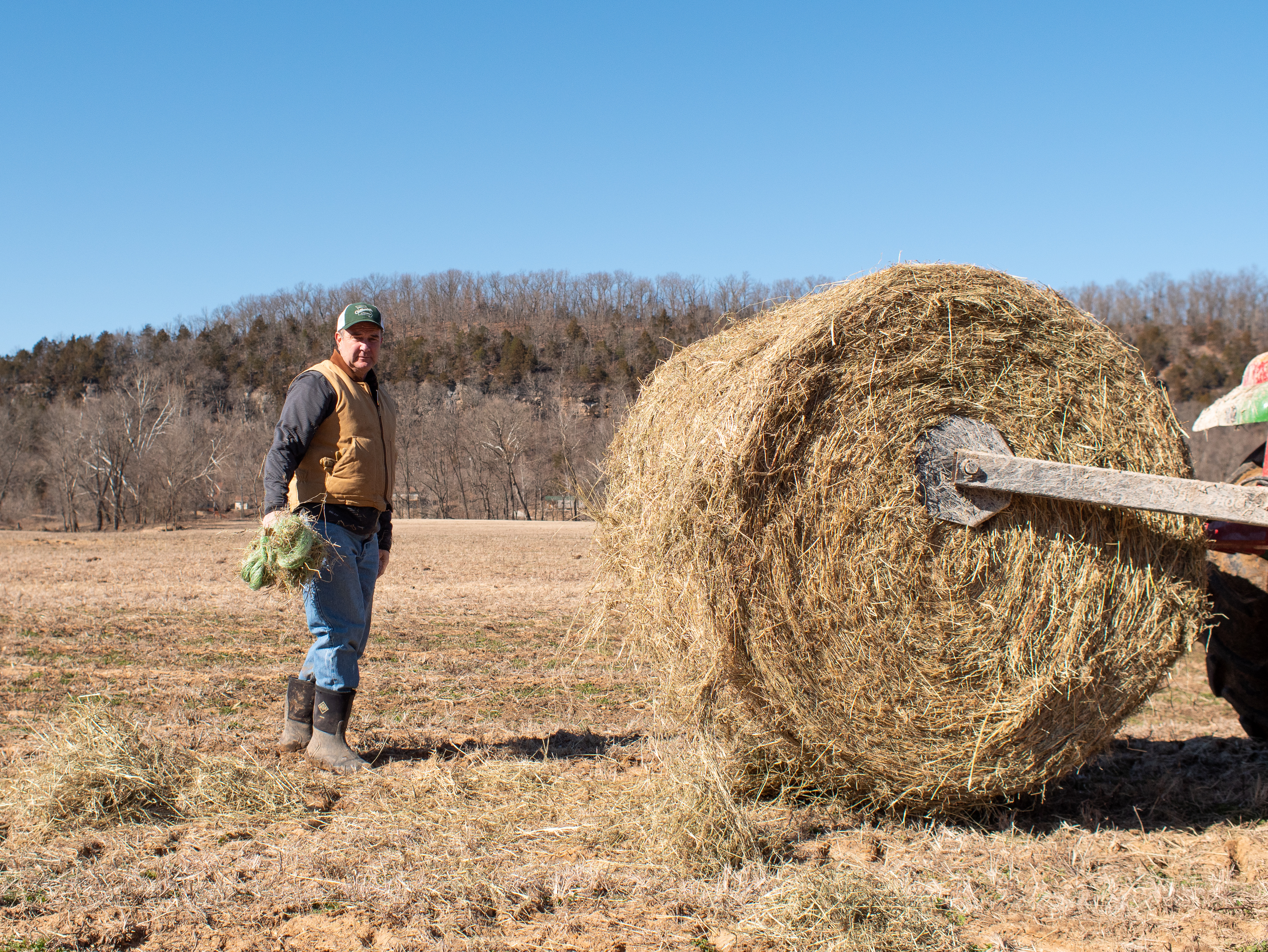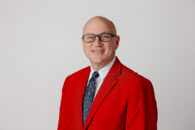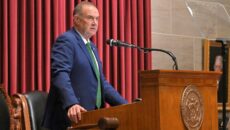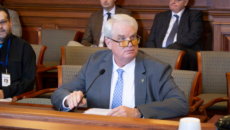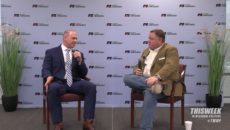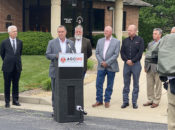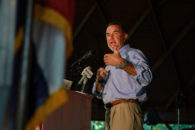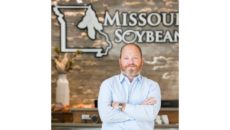Growing up in inner St. Louis City, learning the difference between a cow and a horse was not part of Mike Kehoe’s education. Fast forward five decades and he rides horses when working cattle on his farm.
Missouri’s Lieutenant Governor has personal experience in both urban and rural Missouri that he can draw from while in Jefferson City. Coming from a very diverse background, Kehoe has the ability to relate to people when seeking a common-sense solution.
Kehoe was born in St. Louis and raised by a single mother with six children. He worked his way up from car washing to sales management at a car dealership in St. Louis. By the time he hit 25, he was running Osage Industries in Lynn. In 1992, the 30-year-old started a Ford-Lincoln auto dealership in Jefferson City.
He made a successful mark on the business world while simultaneous forging a path in agriculture. It was in 1984 when Kehoe bought the first acreage of his farm: an atypical move. The “short version” of how he got into farming, according to Kehoe, is that at the age of 15 he went to work for Dave Sinclair who owned a Ford dealership in south St. Louis and a farm in Phelps County.
“When you worked for Mr. Sinclair, you could be washing cars one day and the next you could be on his farm building a fence. And that’s just the way it went,” said Kehoe. “I enjoyed that. I enjoyed that setting, I liked the farm life, I liked the ranch life. It was because of his influence I acquired my first farm and subsequently have added on to that.”
Starting from scratch, the first-generation farmer, who runs cattle and puts up his own hay, is responsible for roughly 750 acres. It’s not something he did overnight, spending years building his operation to what it is now. And it’s a move he made simply because he enjoys the work.
“I very much enjoy the agricultural way of life,” said Kehoe. “Just getting out, fixing some fence, working some cows, cutting some hay, splitting some wood…for me is relaxing.”
As a former state senator and now as lieutenant governor, that varied background gives him added insight into the issues facing Missouri citizens. Saying he is no expert in either urban or rural issues, he noted his personal experiences allow him to empathize with both populations.
To him, urban and rural Missourians care about very similar issues but prioritize them differently based on how they are affected. For example, Kehoe noted that crime prevention is important to all Missourians but probably ranks higher on a priority list to those who live in cities. Comparably, a rural Missourian whose livelihood is dependent on the weight capabilities of bridges would put an emphasis on transportation infrastructure.
The one thing that most Missourians have in common is a desire for common sense policies, according to Kehoe.
“Missouri is a common sense state, I always say,” said Kehoe. “There is a percentage [of voters] that are hardcore Republican or Democrat, but there’s a big piece in the middle that will say ‘I vote for the person.’ That middle represents a large majority of our voters.”
Whether a Missourian identifies as Republican or Democrat, in Kehoe’s opinion, they are looking for people who recognize the importance of agriculture, hard work, and common sense, which is why he believes President Donald Trump is so popular in the state.
“Those voters, whether Democrat or Republican, resonate with what the President is trying to do,” said Kehoe. “Trump is that outside of the box guy. He’s not afraid to call a politician a politician, he’s not afraid to say this doesn’t make sense. He has been successful in business and he has used that. He is able to get our base here in Missouri very fired up. I have been to several of his campaign events that he had last fall and those are the highest energy events I have ever been to. It is insane. I think it’s because he has no filter, he just says what he is gonna say and people like that.”
Trump’s popularity is part of an emerging trend on a national level where not being a so-called career politician is a good thing. Kehoe noted that it seems that the person who has not spent a career in politics tends to have a little bit more of a leg up now.
“I think people look at Washington, D.C. and look at the gridlock and associate the problems in D.C. with people that have been there too long,” said Kehoe.
As a statewide official, Kehoe has seen more small business people — a farm is a small business, he pointed out — running for public office. More agriculturalists and businesspersons are looking to take an active role in government, he has observed.
Kehoe himself is a good example of a statewide and national trend. When he was elected to the state senate in 2010, he was a small businessman who had never held public office nor an elected position.
But it is more than just running as an outsider, he said. It’s also the person’s background, their core values, and their ability to create relationships.
“You can be running as an outsider but you also, whether you like the system or not, you need to make sure you understand you need relationships,” said Kehoe. “One man can’t govern the state of Missouri, one man can’t run the Missouri House or Senate. At the end of the day, to move an agenda or to stop an agenda you are going to need people.”
And that is something Trump and Gov. Mike Parson have in common, Kehoe pointed out: they are both good at building relationships.
Missourians like to see people working together to solve problems, he noted.
“A lot of Missourians — I think the average person who carries their lunch to work every day — just wants to see people in this city, in this building working together to try and fix something,” said Kehoe.

